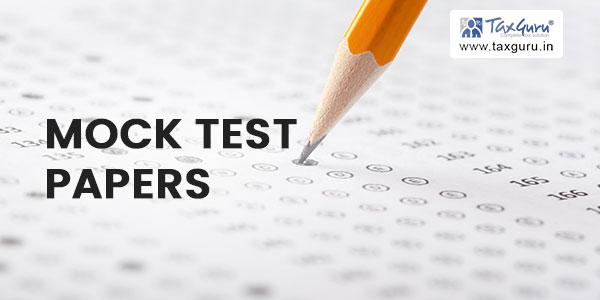Case Law Details
MDLR Resorts (P.) Ltd. v. CIT (Delhi High Court)
Contention Raised by the Assessee – Assessment proceedings under section 153A of the Act are invalid as no panchnamas were drawn in the names of 22 petitioners. Another aspect of the said contention relating to validity of proceedings under Section 153A of the Act has been also raised.
Held by High Court
The expression ‘panchnama‘ has not been defined in the Act. Section 132(13) makes provisions of Code of Criminal Procedure 1971 relating to search and seizure applicable to searches under the said section. Sub-section (5) to Section 100 of the said code states that search shall be made in presence of witnesses and list of things seized during the search shall be prepared by the officers or other persons and signed by such present witnesses. A copy of the said list prepared and duly signed by the witnesses shall be delivered to every occupant or person at the place searched, is mandated and required under sub-section (6) to Section 100 of the code. As per the manual prepared by the Revenue relating to search and seizure operations, at the end of search or when it is temporarily concluded, a panchnama is required to be prepared or drawn. It is evidently clear that this document has considerable evidentiary value and should be prepared with care and caution. The panchnama should be exhaustive, record of all events in the same sequence in which they have occurred and should specify details like name of person against whom warrant was issued, time of temporary conclusion of search etc. Panchnama should be prepared even in cases where nothing is found or seized in the search.
“15. These provisions demonstrate that a search and seizure under the said Act has to be carried out in the presence of at least two respectable inhabitants of the locality where the search and seizure is conducted. These respectable inhabitants are witnesses to the search and seizure and are known as ‗panchas‘. The documentation of what they witness is known as the panchnama. The word ‗nama‘, refers to a written document. Its type is usually determined by the word which is combined with it as a suffix. Examples being, nikah-nama (the written muslim marriage contract), hiba-nama (gift deed, the word hiba meaning – gift), wasiyat-nama (written will) and so on. So a panchnama is a written record of what the panch has witnessed. In Mohan Lal v. Emperor: AIR 1941 Bombay 149, it was observed that ‗the panchnama is merely a record of what a panch sees‘. Similarly, the Gujarat High Court in the case of Valibhai Omarji v. The State: AIR 1963 Guj 145 noted that ‗a Panchanama is essentially a document recording certain things which occur in the presence of Panchas and which are seen and heard by them.‘ Again in The State of Maharashtra v. Kacharadas D. Bhalgar: (1978) 80 BomLR 396, a panchnama was stated to be ‗a memorandum of what happens in the presence of the panchas as seen by them and of what they hear‘.
16. We have examined the meaning of the word panchnama in some detail because it is used in Explanation 2(a) to Section 158BE of the said Act although it has not been defined in the Act. A panchnama, as we have seen is nothing but a document recording what has happened in the presence of the witnesses (panchas). A panchnama may document the search proceedings, with or without any seizure. A panchnama may also document the return of the seized articles or the removal of seals. But, the panchnama that is mentioned in Explanation 2(a) to section 158BE is a panchnama which documents the conclusion of a search. Clearly, if a panchnama does not, from the facts recorded therein, reveal that a search was at all carried out on the day to which it relates, then it would not be a panchnama relating to a search and, consequently, it would not be a panchnama of the type which finds mention in the said Explanation 2(a) to section 158 BE.“
Read in this manner, we do not think that the first contention of the petitioners has any merit and the same is rejected.



















